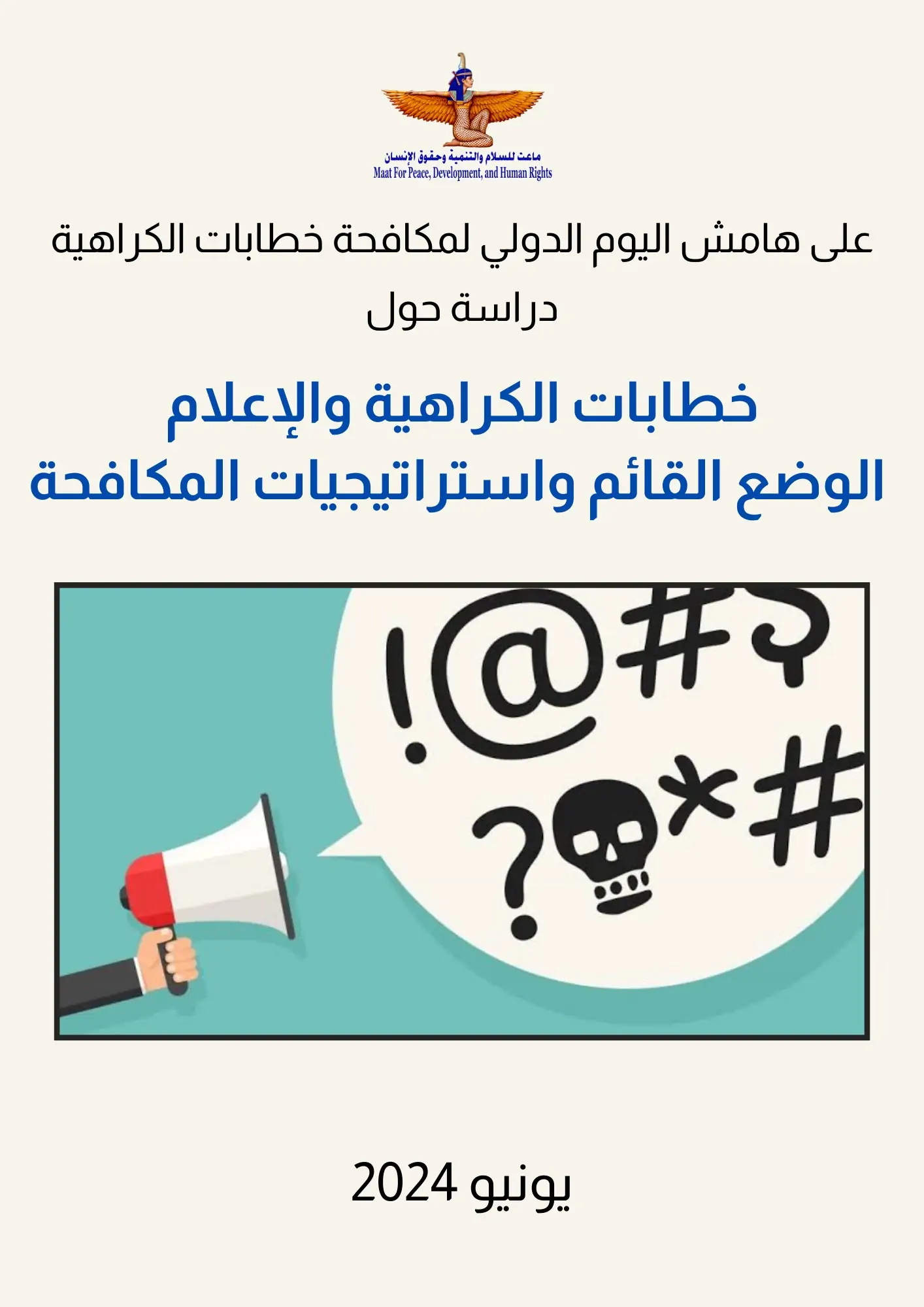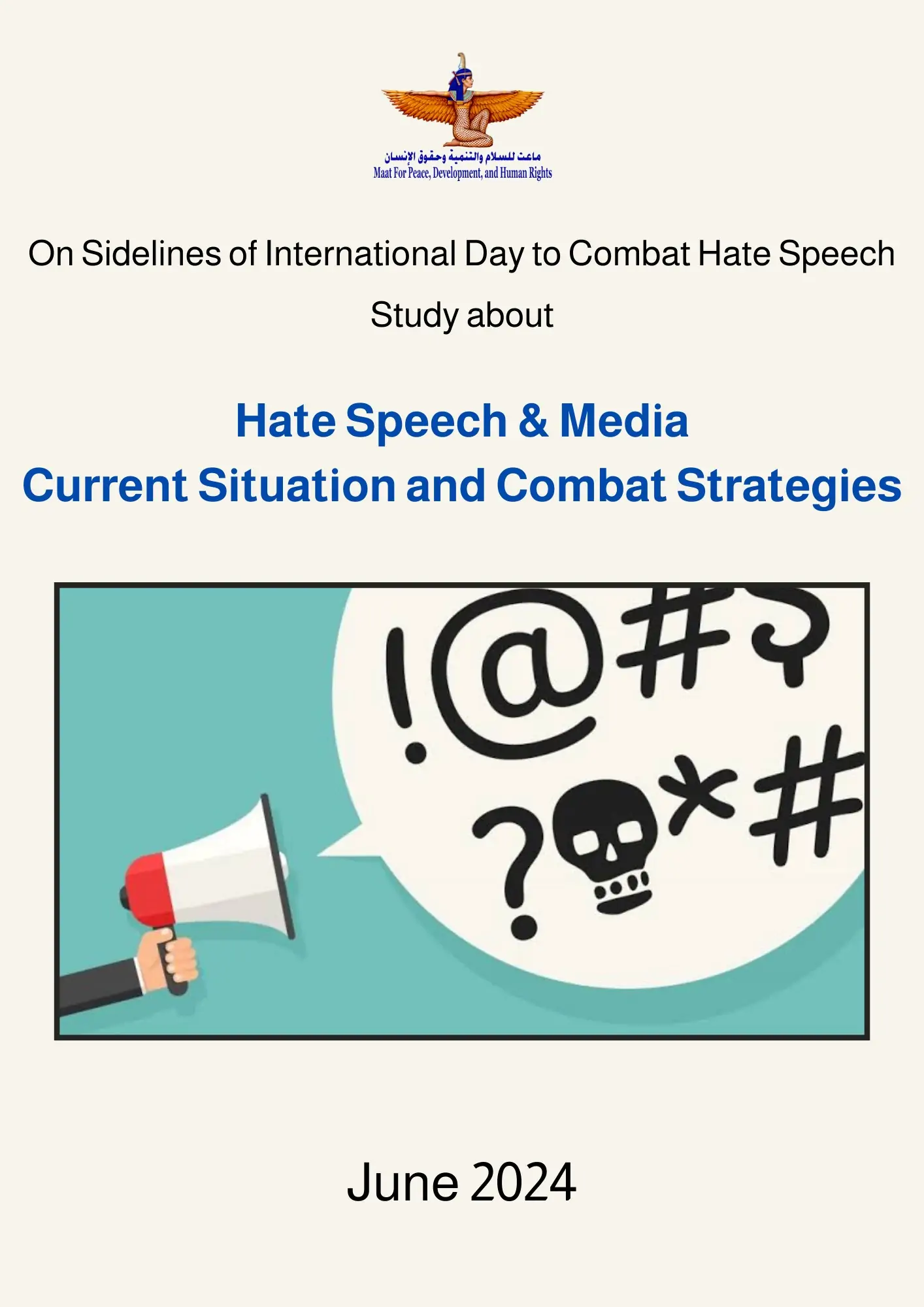In a new study on the sidelines of the International Day to Combat Hate Speech, Maat sheds light on combating media hate, especially in countries of conflict
Okeil : We recommend the necessity of activating the United Nations strategy and action plan on hate speech in the approach to combating media hate at the national levels
Nisreen Hasban: We recommend that governments provide more space for civil society organizations in enhancing the implementation of media controls and building social awareness.
On the sidelines of the International Day for Countering Hate Speech, June 18 of each year, and as part of its work to combat hate speech through various media outlets, and raise community awareness of the seriousness of this phenomenon, Maat Association for Peace, Development and Human Rights launches a new study entitled “Hate Speech and the Media: The Current Situation and Combating Strategies” to examine the forms and causes of media hate speech, international efforts to confront it, and the roles of civil society in combating strategies."
The study confirmed that despite the tangible benefits of media institutions that have become a source of awareness, development and peace, they have a dark side represented by “media hatred” through the use of the media as a tool to ignite wars and conflicts. The study also indicated that the misuse of media content is specifically the most effective means by which hate speech can infiltrate societies, and at the top of them social media, which has recently swept over radio and television in terms of the percentage of sources of information and news.
The study confirms that this media hatred has pushed some countries to engage in bloody civil wars, most notably the use of inflammatory images and words, misleading information and false rumors, whether in the genocide in Rwanda, or in the Tigray War in Ethiopia in 2020, or the fraud and cover-up of the crimes of the Israeli occupation in the recent war on Gaza in the Western media.
Commenting on the study, Ayman Okail, international legal expert and head of Maat Association, stressed the need to further engage and activate the UN strategies and initiatives to combat media hatred, and to work on following the same approaches at the local level. He also pointed to the possibility of severing the ties between digital media and intellectual extremism by exercising international mechanisms to pressure social media companies to tighten their measures against inciting content.
Okail also recommended that governments should set clear and specific rules for actions that constitute incitement to violence and extremism through various media outlets, with the inclusion of the necessary penalties to deter such behaviors. He called for the need to add courses related to neutrality and combating media hatred to the curricula of media colleges and institutes, and to train students on critical thinking skills and correct media controls.
Nesreen Hossban, A researcher at Countering hate Speech and Violent Extremism Unit at Maat Association, recommended that all governments provide more space for civil society organizations to play their primary role in combating hate speech in general, or as a pivotal assistant in strengthening the implementation of media controls and building social awareness.

 |
 |
shortlink: https://maatpeace.org/en/?p=42531












